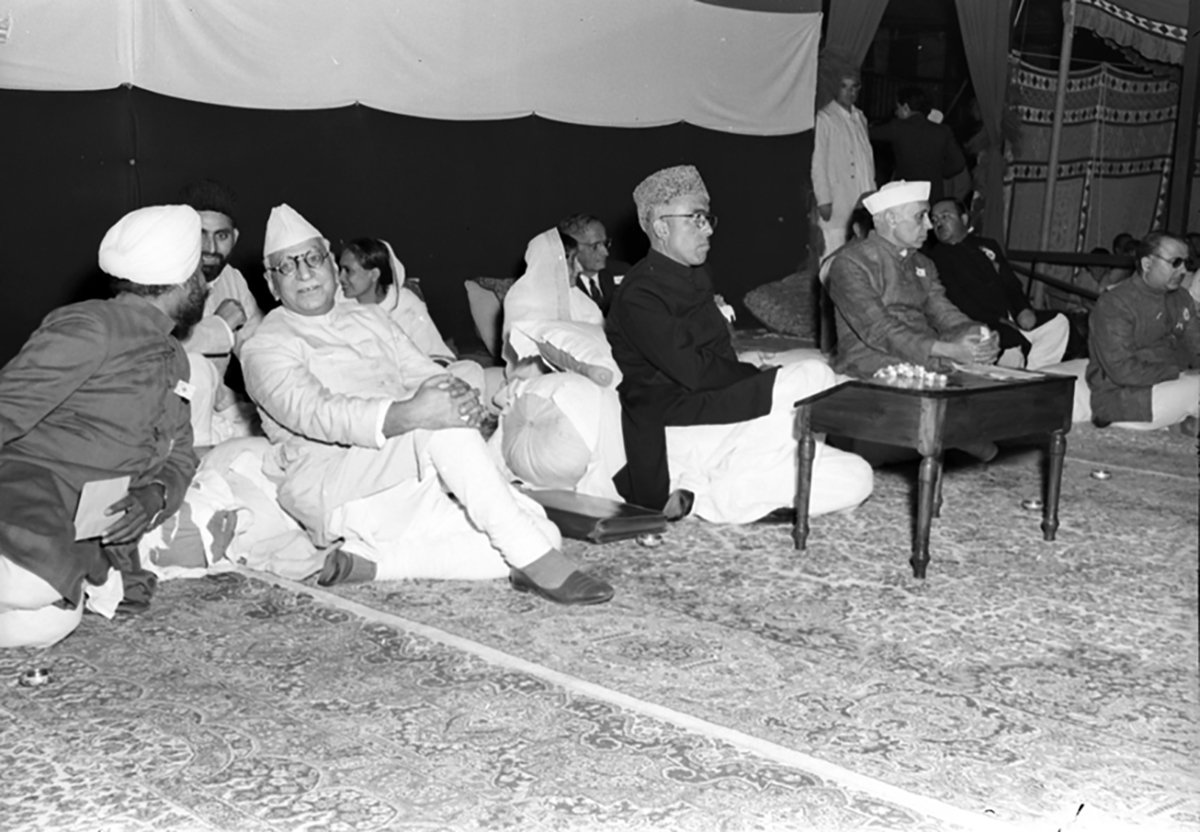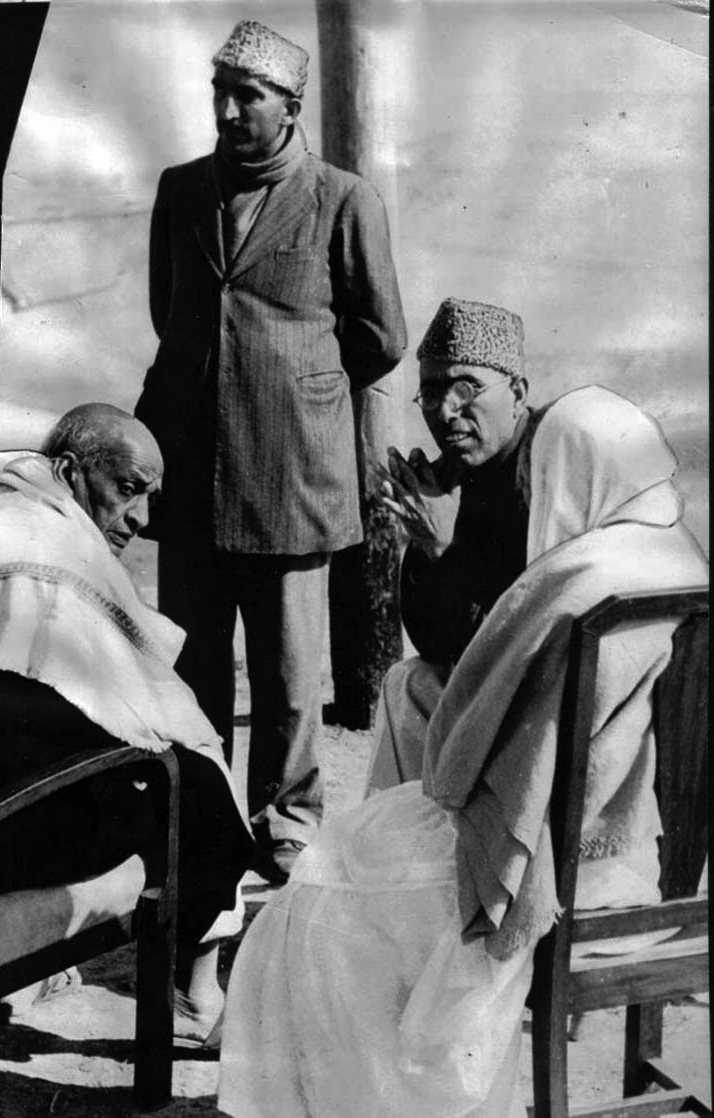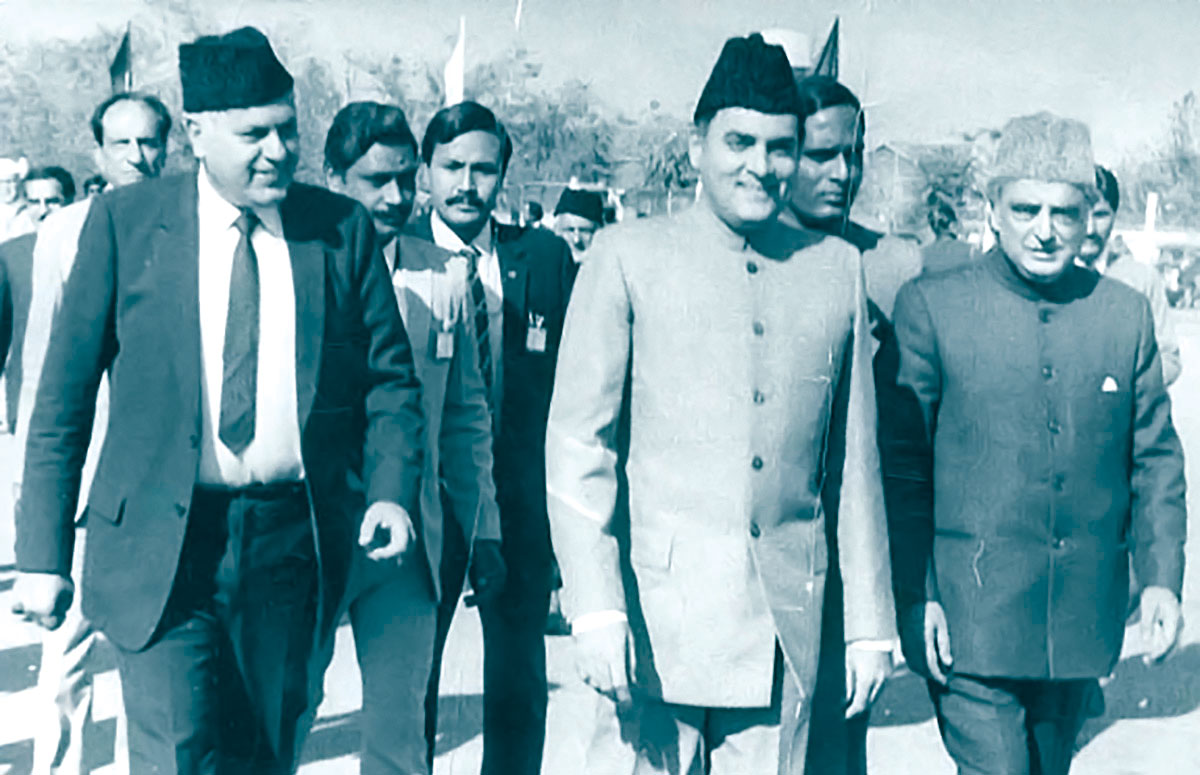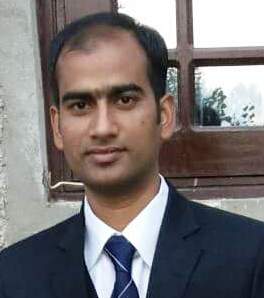by Mohammad Zubair Ud Din
National Conference, Jammu and Kashmir’s grand old party seem in the grips of a simmering internal division. Aga Syed Ruhullah, the influential Shia leader and party’s chief spokesman, took a serious dig at his colleague and, more importantly, political advisor to Omar Abdullah for his remarks of conciliation without making a mention of Article 370. Tanvir Sadiq had asked for the release of political prisoners, revisiting the domicile laws besides lifting of all curbs on the Internet.

Sensing the gravity of the situation, Omar Abdullah stepped in and tried to mend fences within the seemingly looking disparate National Conference by denying any rift within party besides maintaining that National Conference stands committed to challenging what happened on August 5, 2019, though through legal means. Aga Syed Ruhullah, in a subsequent interview to The Wire, upheld his political belief that whatever happened on August 5, 2019, was an onslaught and a murder of democracy and his party’s silence on it was proving counterproductive.
However, Aga Syed Ruhullah or for that matter any other member of National Conference may have to face disappointment and adjust themselves with the new political reality for this is what the chequered history of National Conference revolving around the personalities of Shiekh Abdullah, Farooq Abdullah or for that matter Omar Abdullah since 1947 suggests.
The Lion’s Experience
It started with Shiekh Mohammad Abdullah who had been instrumental in the Accession of Jammu and Kashmir with India despite heavy odds. In view of the international dimensions, the government of India contended itself with the special constitutional status for Jammu and Kashmir emanating from the Instrument of Accession.

The freehand given to Shiekh Mohammad Abdullah after he assumed the reins of Jammu and Kashmir as the Head of Emergency Administration on October 27, 1947 resulted in a regimented state set-up, which did not tolerate any dissent. In fact, the government and the National Conference became synonymous. Shiekh, under a false premise, treated the terms of the Instrument of Accession literally implying that the Government of India would not extend its authority other than what was surrendered in the Instrument of Accession – Defense, Foreign Affairs and Communication.
However, the Government of India was clear in its stand from the very beginning by considering not only the Accession complete but more importantly, it considered the provision of special status for Jammu and Kashmir as temporary necessitated by the circumstances with the ultimate avowed object of bringing Jammu and Kashmir at par with other states of the Indian Union. As a logical corollary, the government of India forced Shiekh Mohammad Abdullah to concede few but important powers to the Union government in the Delhi Agreement, 1952.
Meanwhile, the Praja Parishad Agitation hardened the stand of Sheikh Mohammad Abdullah and he began to cast aspersions on the Accession itself resulting in an unbridgeable chasm between him and Pandit Nehru resulting ultimately in the former’s dishonourable exit and arrest.
Twenty-Two years later, in an astonishing climb-down from his stated position on Kashmir’s autonomous status within the Union of India, Shiekh Abdullah, notwithstanding the changed balance of power in the Indian subcontinent, signed an accord with Indira Gandhi in 1975. He, thus, gave his tacit agreement to all those union laws and constitutional orders that had been extended to and implemented in Jammu and Kashmir subsequent to his arrest in 1953. What was he to say to all those forces who had tried to carry on the fight from the platform of Plebiscite Front in his absence but nevertheless enjoying his blessings? He disowned them. The accord was accepted and swallowed like a bitter pill by the people at large because the leader who people loved and followed blindly signed it. The only consolation was that Jammu and Kashmir was to continue to be governed by Article 370.
The Farooq Abdullah Case
Farooq Abdullah could never match the stature of his father and predecessor, Shiekh Mohammad Abdullah. Consequently, he could not be expected to take the Centre head on no matter how much the political correctness of his endeavours. Farooq Abdullah took a conscious decision to join an alliance of regional parties from all over India to the utter dismay and displeasure of Indira Gandhi. He organised the meeting of Opposition Conclave in October 1983. The theme of the Conclave was State-Centre relations with a focus on the problem of Central government’s attempt to remove the opposition governments not only in Jammu and Kashmir but in other states as well.

This was unacceptable to Indira Gandhi and resulted in the infamous toppling of Farooq Abdullah Government. This was an insult not only to Farooq but also to the people of Jammu and Kashmir who had voted the National Conference to power. What Farooq did in response? Instead of leading his people in the struggle for dignity, Farooq Abdullah lent unconditional support to the Rajiv Gandhi Government at the centre and followed it with an accord with the Congress in the build-up to the infamous 1987 Assembly elections.
Farooq made an abject surrender despite the popular electoral support. He unequivocally declared that for any government to succeed in Jammu and Kashmir, it necessarily had to have the blessings of Central government. What did it imply? No matter which government the people of Jammu and Kashmir would vote to power, the centre would ultimately decide who was to rule in Jammu and Kashmir. And what is surprising, Farooq Abdullah’s could not even defend his constitutional right of joining hands with opposition parties in India.
The Government of India decided to conduct elections to the Jammu and Kashmir Assembly in 1996. Farooq Abdullah returned to power with a thumping majority. National Conference passed the autonomy resolution in the Assembly in 2000 with an overwhelming majority only to be rejected without even considering it worth a thought by the then NDA government. Farooq Abdullah’s response was akin to what he had done after his removal in 1984. He continued his support to the NDA government and told his son, Omar Abdullah, to continue as the Union Minister of State for External affairs.
Omar Abdullah was taken into detention after Article 370 was abrogated. He supported a long beard during detention, which many took as his resentment and resistance against what happened on August 5, 2019. It has been more than two months since Omar Abdullah was released from detention but there has been no policy statement till date on Article 370, which many observers take as his acquiescence with the changed political reality. In a tweet in April, he made a demand for the restoration of statehood besides conducting elections.
Tailpiece

Sheikh Abdullah should not have raised questions on the accession when he himself was instrumental in securing the accession of Jammu and Kashmir with India. He should have utilised his energies to democratize the political structure of Jammu and Kashmir by allowing the opposition to flower. In case of Jammu, he should have tried to personally reach them in order to allay not only their fears but to win over them for his cause of greater autonomy for Jammu and Kashmir. It sans logic that he did not even consider the offer of making Jammu and Kashmir’s special status permanent that Maulana Abul Kalam Azad was sent with after Shiekh Abdullah adopted a militant tune in reaction to the Praja Parishad Agitation. The confrontational attitude ultimately saw him land in prison but what’s more important he was forced to accept the fait accompli in 1975.
Aga Syed Rohullah should have taken a leaf from Kashmir history before criticizing his colleague. Who knows Tanveer Sadiq could do what Mirza Afzal Beigh did in the case of Indira-Abdullah Accord.
(Author is Assistant Professor of History, J&K Higher Education Department. The opinions expressed in this article are those of the author’s and do not purport to reflect the opinions or views of Kashmir Life)















